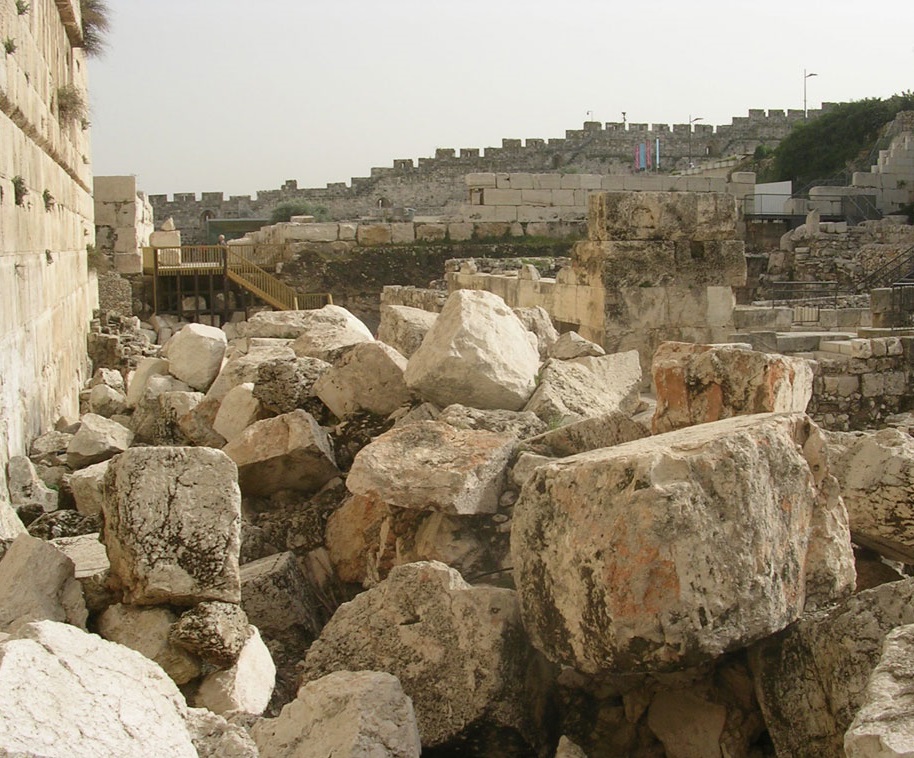Jesus & the Law – on the Temple … (12/01/18)
Jewish culture in Jesus’ day was a religion-based society, and as such it can come as no surprise that more than a handful of the regulations found in the Old Testament focus on the Temple upon which the Jewish religion was centered at that time.1 Similarly, seeing as how Jesus’ primary mission was one of religious reform, it can also come as no surprise that his thoughts on the Temple (including the priests who benefited therefrom, the tithes & taxes that were paid thereto, and the sacrifices that were made therein) were just as radical as those he announced about other matters of the Law. Consider …
.*Whereas the Law strongly implied that the Temple was the singular place where God resided – the place from whence the Kingdom of Heaven could be accessed, Jesus spoke quite differently about the same – claiming instead that “the Kingdom of Heaven [was much more] like a mustard seed … the smallest of all the seeds;” a seed that came from a ubiquitous weed found in all corners of that region; a seed that nevertheless could become a tree large enough to allow “all the birds of the air to come and nest therein.” (see Matthew 13:31-32, Mark 4:30-32, & Luke 13:18-19)
.*Whereas the Law implied that the Temple was the most magnificent of holy places (and therefor worthy of the glory of God), Jesus felt very differently – dramatically diminishing the Temple’s supposed grandeur by boldly stating that “the Kingdom of Heaven is [much more] like the [small amount of] yeast that a woman [needs to mix] into three full measures of flour in order to leaven it all”2 (see Matthew 13:33 & Luke 13:20-21); quite clearly implying that one did not at all need to enter the gaudy magnificence of the Temple in order to access the Divine; that access thereto was available to everyone, and that even the least noteworthy of abodes could imbue one’s Soul with the same.
*Whereas the Temple was seen to be an immutable & everlasting symbol of God’s presence and His Love – a permanent fixture of Jewish culture that was meant to be duly revered as such (see Leviticus 19:30), Jesus quite openly decried the same – at one point indicating the buildings of the Temple complex and saying “You see all these, do you not? Truly I tell you, not one stone will be left here upon the other. All will be thrown down.” (see Matthew 24:1-2, Mark 13:1-2, & Luke 21:5-6)

………………………………………………………….
1 See the commandments to build a holy Sanctuary in which God would supposedly reside (see Exodus 25:8-9 & Deuteronomy 12:11), to keep a lamp ever-lit in the Tent of Meeting and a fire ever-burning on the sacrificial altar (see Exodus 27:20-21 & Leviticus 6:12-13, respectively), to regularly clean all sacrificial ash from the altar (see Leviticus 6:10), to grant only sober priests access to the Sanctuary (see Leviticus 10:9-11), to revere the Sanctuary and keep watch over it continually (see Leviticus 19:30 & Numbers 18:2-5, respectively) – just to name a few …
2 NOTE that “three measures” of flour is roughly 9 gallons worth of the same – enough to bake 52 large loaves of bread; enough to feed not only herself but essentially her entire village … NOTE as well that it is a “woman” who is enlivening the Kingdom in this teaching, in extremely stark contrast to the Temple’s priesthood of Jesus’ day – which was exclusively male … Finally, NOTE that the Kingdom of Heaven is directly equated with “yeast” – the same yeast that was explicitly forbidden to be present in any sacrifice offered in the Temple (see Leviticus 2:11)!




 ;
;